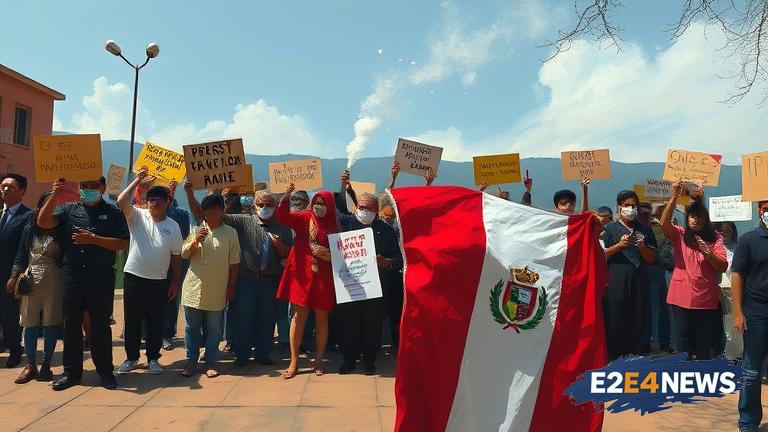Peru’s newly enacted amnesty law has sent shockwaves across the globe, with human rights organizations and international communities condemning the move as a blatant attempt to grant impunity to those responsible for human rights abuses. The law, which was passed by the Peruvian Congress, grants amnesty to individuals accused of human rights violations during the country’s internal conflict from 1980 to 2000. The move has been met with widespread criticism, with many arguing that it undermines the country’s efforts to come to terms with its troubled past and provide justice to victims of human rights abuses. The law has also sparked concerns that it may set a dangerous precedent for other countries to follow, potentially leading to a culture of impunity and undermining international human rights norms. Human rights organizations, including Amnesty International and Human Rights Watch, have strongly condemned the law, calling it a ‘betrayal’ of the victims of human rights abuses and a ‘slap in the face’ to the international community. The Peruvian government has defended the law, arguing that it is necessary to promote national reconciliation and stability. However, critics argue that the law is a thinly veiled attempt to shield former President Alberto Fujimori and other high-ranking officials from accountability for their role in human rights abuses during their time in office. The international community has also weighed in on the issue, with the United Nations and the European Union expressing concerns about the law’s implications for human rights and the rule of law. The law has also sparked protests and demonstrations across Peru, with many citizens taking to the streets to express their outrage and demand that the government repeal the law. Despite the backlash, the Peruvian government has shown no signs of backing down, with President Dina Boluarte stating that the law is ‘irreversible’. The controversy surrounding the law has also highlighted the ongoing struggles of Peru’s truth and reconciliation commission, which was established to investigate and document human rights abuses during the country’s internal conflict. The commission’s work has been hindered by a lack of cooperation from the government and the military, and the new law has raised concerns that it may be further undermined. As the international community continues to pressure the Peruvian government to repeal the law, it remains to be seen whether the government will bow to pressure or continue to defend its decision. The outcome of this controversy will have significant implications not only for Peru but also for the global human rights community, and will be closely watched by human rights organizations and governments around the world. The Peruvian government’s decision to enact the amnesty law has also raised questions about the country’s commitment to human rights and the rule of law, and has sparked concerns about the potential for similar laws to be enacted in other countries. Furthermore, the law has highlighted the need for greater international cooperation and oversight to prevent such laws from being enacted in the future. In addition, the controversy surrounding the law has also underscored the importance of holding those responsible for human rights abuses accountable, and the need for governments to prioritize justice and accountability over national reconciliation and stability.
